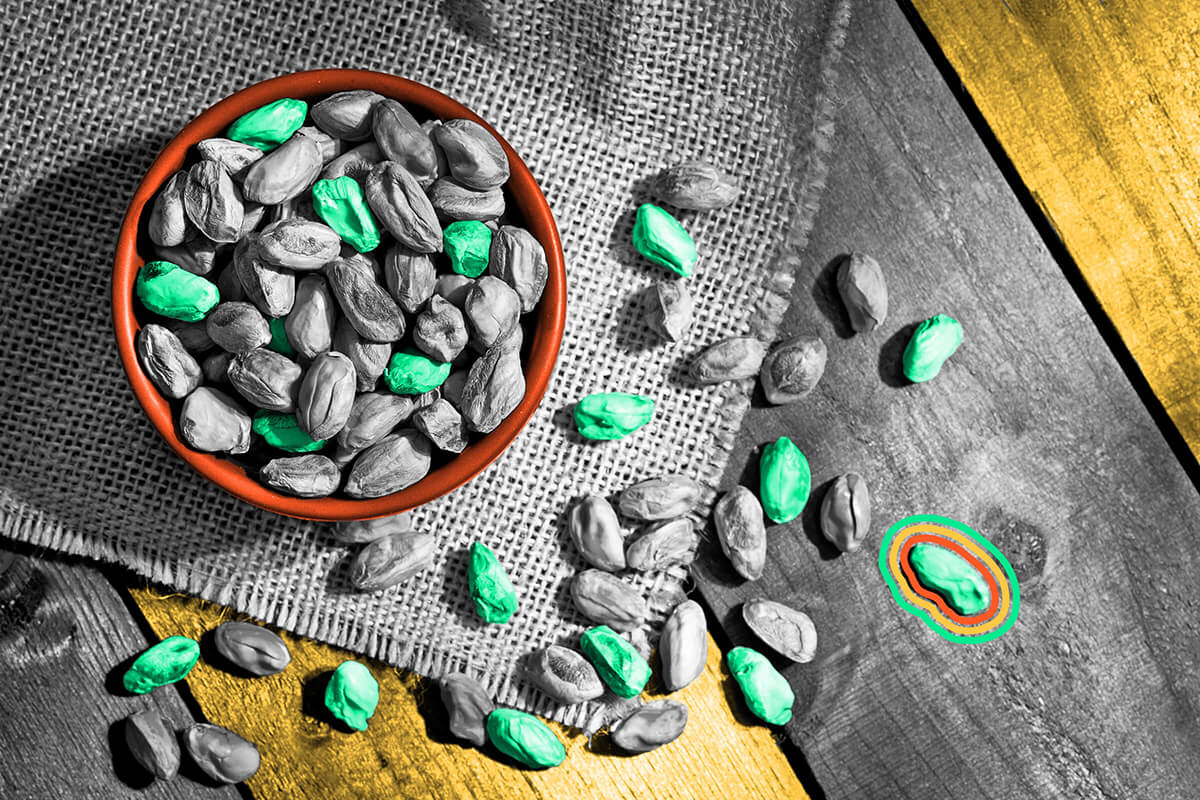
Pistachios can spontaneously combust.
It turns out there’s a price to pay for how tasty and nutritious pistachios are: Under the right circumstances, they can spontaneously combust. Everyone’s favorite shelled nut is especially rich in fat, which is highly flammable. Thankfully, that only becomes a problem when pistachios are packed too tightly during shipping or storage. It’s important to keep the nuts dry lest they become moldy — but if they’re kept too dry and there are too many of them bunched together, they can self-heat and catch fire without an external heat source.
Though exceedingly rare and easy to avoid if the proper instructions are followed, pistachio self-combustion is a real enough concern that the German Transport Information Service specifically advises that pistachios “not be stowed together with fibers/fibrous materials as oil-soaked fibers may promote self-heating/spontaneous combustion of the cargo.” Don’t worry, though: It won’t happen in your pantry with just a few bags, which means you can indulge in the shelled snack of your dreams without worrying about their flavor becoming unexpectedly smoky.
Cashews are delicious, but you’d never know it from looking at a cashew tree — they’re quite strange-looking. If seeing one in the wild makes you hesitant to eat the fruit they bear, there’s a good reason for that: Cashew shells are toxic. They contain a toxin called urushiol, which triggers a delayed allergic reaction in the form of a painful, itchy rash; urushiol is also found in poison ivy, which, like cashews and pistachios, is a member of the Anacardiaceae family of trees. It’s for this reason that cashews are roasted before being sold and consumed, even those labeled as “raw.” Doing so removes all traces of urushiol and makes them safe to eat.

